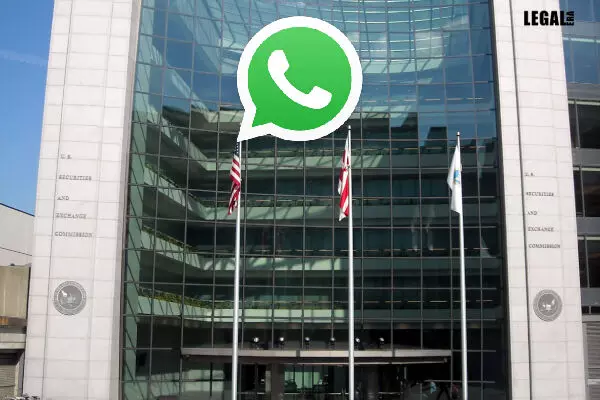- Home
- News
- Articles+
- Aerospace
- AI
- Agriculture
- Alternate Dispute Resolution
- Arbitration & Mediation
- Banking and Finance
- Bankruptcy
- Book Review
- Bribery & Corruption
- Commercial Litigation
- Competition Law
- Conference Reports
- Consumer Products
- Contract
- Corporate Governance
- Corporate Law
- Covid-19
- Cryptocurrency
- Cybersecurity
- Data Protection
- Defence
- Digital Economy
- E-commerce
- Employment Law
- Energy and Natural Resources
- Entertainment and Sports Law
- Environmental Law
- ESG
- FDI
- Food and Beverage
- Gaming
- Health Care
- IBC Diaries
- In Focus
- Inclusion & Diversity
- Insurance Law
- Intellectual Property
- International Law
- IP & Tech Era
- Know the Law
- Labour Laws
- Law & Policy and Regulation
- Litigation
- Litigation Funding
- Manufacturing
- Mergers & Acquisitions
- NFTs
- Privacy
- Private Equity
- Project Finance
- Real Estate
- Risk and Compliance
- Student Corner
- Take On Board
- Tax
- Technology Media and Telecom
- Tributes
- Viewpoint
- Zoom In
- Law Firms
- In-House
- Rankings
- E-Magazine
- Legal Era TV
- Events
- News
- Articles
- Aerospace
- AI
- Agriculture
- Alternate Dispute Resolution
- Arbitration & Mediation
- Banking and Finance
- Bankruptcy
- Book Review
- Bribery & Corruption
- Commercial Litigation
- Competition Law
- Conference Reports
- Consumer Products
- Contract
- Corporate Governance
- Corporate Law
- Covid-19
- Cryptocurrency
- Cybersecurity
- Data Protection
- Defence
- Digital Economy
- E-commerce
- Employment Law
- Energy and Natural Resources
- Entertainment and Sports Law
- Environmental Law
- ESG
- FDI
- Food and Beverage
- Gaming
- Health Care
- IBC Diaries
- In Focus
- Inclusion & Diversity
- Insurance Law
- Intellectual Property
- International Law
- IP & Tech Era
- Know the Law
- Labour Laws
- Law & Policy and Regulation
- Litigation
- Litigation Funding
- Manufacturing
- Mergers & Acquisitions
- NFTs
- Privacy
- Private Equity
- Project Finance
- Real Estate
- Risk and Compliance
- Student Corner
- Take On Board
- Tax
- Technology Media and Telecom
- Tributes
- Viewpoint
- Zoom In
- Law Firms
- In-House
- Rankings
- E-Magazine
- Legal Era TV
- Events
US Commission Fines 26 Firms $393 mn Over Record-Keeping Failure

US Commission Fines 26 Firms $393 mn Over Record-Keeping Failure
The personnel at multiple levels of authority, including supervisors and senior managers, failed to comply with the directions
The US Securities and Exchange Commission (SEC) has imposed a $393 million fine on 26 financial institutions on observing that they failed to retain electronic communications under the law.
Financial firms must preserve business communications in case of accusations of wrongdoing. Many have faced fines for violating the rules. The 26 firms have been accused of "widespread and longstanding failures" to follow the protocols.
The $392.75 million fines add to the billions that the banks have already been sanctioned over improper use of personal phones and messaging services such as WhatsApp.
The government watchdog stated, "Each of the SEC's investigations uncovered pervasive and longstanding use of unapproved communication methods, known as off-channel communications, at these firms. These failures involved personnel at multiple levels of authority, including supervisors and senior managers.”
Four companies Ameriprise Financial Services, Edward D. Jones & Co, LPL Financial and Raymond James & Associates, have each agreed to pay a $50 million penalty.
The other companies include a unit of the Royal Bank of Canada, which will pay $45 million and the Bank of New York Mellon Corporation to pay $40 million. Parts of the Toronto-Dominion Bank and Truist Financial have also been sanctioned.
The SEC said the firms agreeing to the settlement admitted to breaking recordkeeping rules.
Recently, on investigating, the US Commodity Futures Trading Commission (CFTC) also announced settlements for similar violations.
It directed the Toronto-Dominion Bank to pay $75 million and Cowen and Company $3 million in civil monetary penalties.
The CFTC noted that the companies, "failed to stop employees, including those at senior levels, from communicating about using unapproved communication methods, including messages sent via personal texts."
It added, "These written communications were not maintained and preserved by the firms even though they are required to do so because they relate to market activities registered with the CFTC.”
In 2021, US banking giant JPMorgan Chase had agreed to pay a $125 million penalty to the SEC and $75 million to the CFTC for similar reasons.
Meanwhile, last year, several Wall Street institutions, including Citigroup and Goldman Sachs, subsidiaries of Deutsche Bank and UBS, agreed to pay $1.82 billion in penalties for failing to retain messages exchanged on personal devices by their employees.



